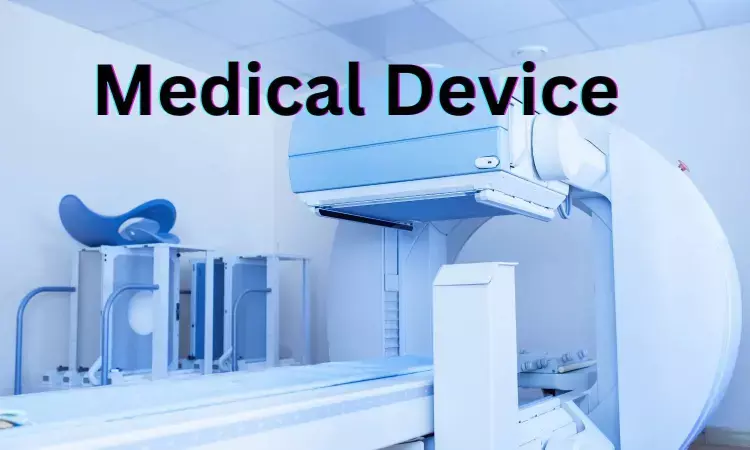- Home
- Medical news & Guidelines
- Anesthesiology
- Cardiology and CTVS
- Critical Care
- Dentistry
- Dermatology
- Diabetes and Endocrinology
- ENT
- Gastroenterology
- Medicine
- Nephrology
- Neurology
- Obstretics-Gynaecology
- Oncology
- Ophthalmology
- Orthopaedics
- Pediatrics-Neonatology
- Psychiatry
- Pulmonology
- Radiology
- Surgery
- Urology
- Laboratory Medicine
- Diet
- Nursing
- Paramedical
- Physiotherapy
- Health news
- Fact Check
- Bone Health Fact Check
- Brain Health Fact Check
- Cancer Related Fact Check
- Child Care Fact Check
- Dental and oral health fact check
- Diabetes and metabolic health fact check
- Diet and Nutrition Fact Check
- Eye and ENT Care Fact Check
- Fitness fact check
- Gut health fact check
- Heart health fact check
- Kidney health fact check
- Medical education fact check
- Men's health fact check
- Respiratory fact check
- Skin and hair care fact check
- Vaccine and Immunization fact check
- Women's health fact check
- AYUSH
- State News
- Andaman and Nicobar Islands
- Andhra Pradesh
- Arunachal Pradesh
- Assam
- Bihar
- Chandigarh
- Chattisgarh
- Dadra and Nagar Haveli
- Daman and Diu
- Delhi
- Goa
- Gujarat
- Haryana
- Himachal Pradesh
- Jammu & Kashmir
- Jharkhand
- Karnataka
- Kerala
- Ladakh
- Lakshadweep
- Madhya Pradesh
- Maharashtra
- Manipur
- Meghalaya
- Mizoram
- Nagaland
- Odisha
- Puducherry
- Punjab
- Rajasthan
- Sikkim
- Tamil Nadu
- Telangana
- Tripura
- Uttar Pradesh
- Uttrakhand
- West Bengal
- Medical Education
- Industry
Imported Devices Face 7.5-10% Duty, Domestic Devices GST at 12%, Govt Clarifies

New Delhi: While imported medical devices attract a basic customs duty of 7.5-10% along with a 5% health cess, domestically manufactured medical devices are subject to Goods and Services Tax (GST) at concessionary rates - 12% for most medical instruments and equipment, 5% for orthopaedic appliances, implants and artificial body parts, and nil GST for hearing aids, the Parliament was informed in a written reply to the Rajya Sabha.
This clarification came in response to a question raised by Rajya Sabha MP Dr. Fauzia Khan, who had asked whether domestically manufactured medical devices face higher GST rates while imported products attract lower customs duties, and what steps the Government is taking under the “Make in India” initiative to support the domestic medical device industry against international competition.
Responding to the query, Minister of State for Chemicals and Fertilizers Smt. Anupriya Patel, in a written reply, clarified that medical devices fall under tariff headings 9018 to 9022 of the Customs Tariff Act, 1975. She further explained that under Section 3(7) of the Act, the Integrated Goods and Services Tax (IGST) applicable to imported medical devices is the same as the GST rate levied on domestically manufactured medical devices.
As per information provided by the Department of Revenue, most medical instruments and equipment attract a concessionary GST rate of 12%, whereas orthopaedic appliances, implants and artificial body parts are subject to 5%, and hearing aids are exempt from GST. Medical devices generally attract a basic customs duty of 7.5–10%, along with a 5% health cess. However, items such as wheelchairs, crutches, walking frames, artificial limbs, artificial hearts, coronary stents, endovascular stents and various assistive devices and rehabilitation aids for disabled persons attract nil customs duty and nil health cess.
In line with the “Make in India” vision, the Government has launched several initiatives to support domestic manufacturing of medical devices. The Production Linked Incentive (PLI) Scheme for Promoting Domestic Manufacturing of Medical Devices, with a budgetary outlay of ₹3,420 crore, covers FY 2022–23 to FY 2026–27. Under this scheme, 21 greenfield projects have been commissioned and production has started for 54 products, including high-end devices such as linear accelerators, MRI, ultrasound, CT scanners, mammography machines, C-arm and X-ray machines. Till March 2025, cumulative eligible sales worth ₹10,413.40 crore were reported, including exports of ₹5,002 crore.
The Government is also developing common infrastructure through the Scheme for Promotion of Medical Device Parks. Three parks in Gautam Buddha Nagar (Uttar Pradesh), Ujjain (Madhya Pradesh) and Kancheepuram (Tamil Nadu) are at an advanced stage of development, with a total project cost of over ₹871.11 crore. Each park is receiving central assistance of ₹100 crore for creating shared facilities aimed at boosting competitiveness and reducing costs.
Further, the ₹500 crore Scheme for Strengthening the Medical Device Industry has been launched to support manufacturing of key components and accessories, skill development, clinical studies, common infrastructure, and industry promotion.
In addition, under the Public Procurement (Preference to Make in India) Order, 2017, the Department of Pharmaceuticals has notified 135 in vitro diagnostic devices and 19 other medical devices for exclusive procurement from Class-I local suppliers, citing sufficient domestic capacity and competition.
Replying to a related query on whether the Phased Manufacturing Programme (PMP) would be extended beyond X-ray machines to boost domestic production, the Minister clarified that “no such plan is currently under consideration of the Government.”
Mpharm (Pharmacology)
Susmita Roy, B pharm, M pharm Pharmacology, graduated from Gurunanak Institute of Pharmaceutical Science and Technology with a bachelor's degree in Pharmacy. She is currently working as an assistant professor at Haldia Institute of Pharmacy in West Bengal. She has been part of Medical Dialogues since March 2021.


